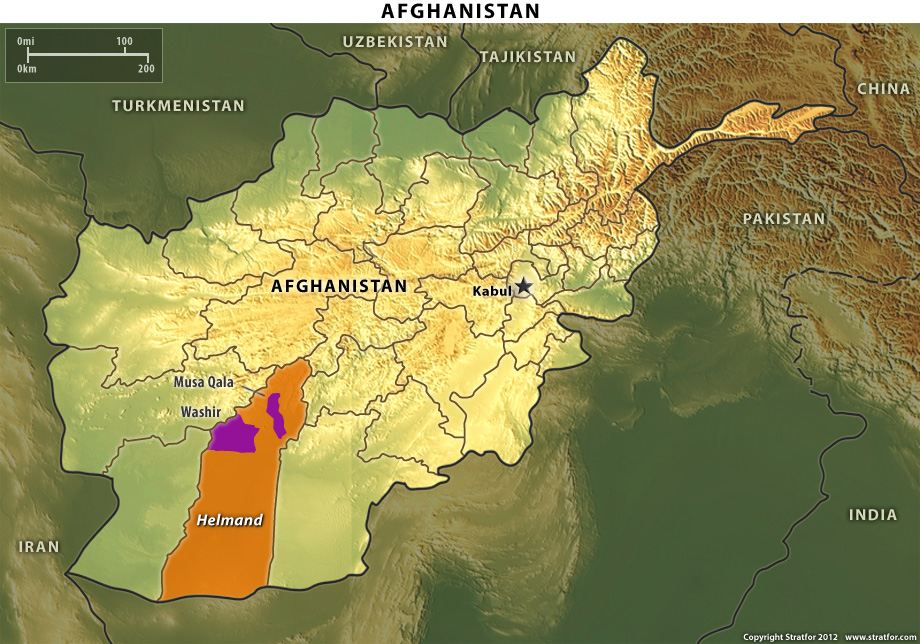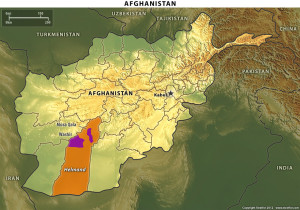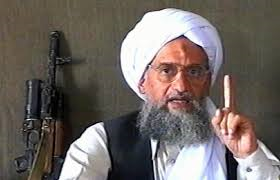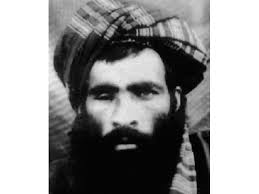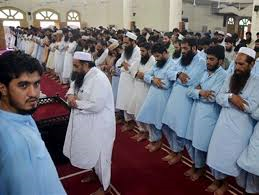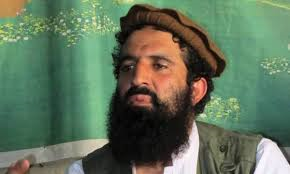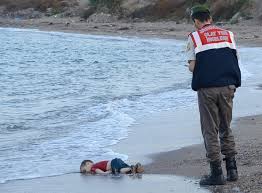
(Credit: guardian.com)
ISTANBUL, Sept 3 — The smugglers had promised Abdullah Kurdi a motorboat for the trip from Turkey to Greece, a step on the way to a new life in Canada. Instead, they showed up with a 15-foot rubber raft that flipped in high waves, dumping Mr. Kurdi, his wife and their two small sons into the sea.
Mr. Kurdi tried to keep the boys, Aylan and Ghalib, afloat, but one died as he pushed the other to his wife, Rehan, pleading, “Just keep his head above the water!”
Only Mr. Kurdi, 40, survived.
“Now I don’t want anything,” he said a day later, on Thursday, from Mugla, Turkey, after filling out forms at a morgue to claim the bodies of his family. “Even if you give me all the countries in the world, I don’t want them. What was precious is gone.”
It is an image of his youngest son, a lifeless child in a red shirt and dark shorts face down on a Turkish beach, that appears to have galvanized public attention to a crisis that has been building for years. Once again, it is not the sheer size of the catastrophe — millions upon millions forced by war and desperation to leave their homes — but a single tragedy that has clarified the moment. It was 3-year-old Aylan, his round cheek pressed to the sand as if he were sleeping, except for the waves lapping his face.
Rocketing across the world on social media, the photograph has forced Western nations to confront the consequence of a collective failure to help migrants fleeing the Middle East and Africa to Europe in search of hope, opportunity and safety. Aylan, perhaps more even than the anonymous, decomposing corpses found in the back of a truck in Austria that shocked Europe last week, has personalized the tragedy facing the 11 million Syrians displaced by more than four years of war.
The case of this young boy’s doomed journey has landed as a political bombshell across the Middle East and Europe, and even countries as far away as Canada, which has up to now not been a prominent player in the Syria crisis. Canadian officials were under intense pressure to explain why the Kurdi family was unable to get permission to immigrate legally, despite having relatives there who were willing to support and employ them. So far, the government has only cited incomplete documents, an explanation that has done little to quiet the outrage at home and abroad.
Advertisement
Continue reading the main story
Mr. Kurdi, a Syrian Kurdish barber, and his brother Mohammad wanted to immigrate under the sponsorship of their sister, Tima Kurdi, 43, who lives in a suburb of Vancouver, British Columbia. She had invited Mr. Kurdi to live in her basement with his family and work in her hair salon.
“They can work with me, doing hair, I can find them a job, and then when they are financially O.K., they can move out and be their own,” she said by phone on Thursday.
Mr. Kurdi, too, said his sister had told Canadian authorities that she would be “responsible for our expenses,” but that “they didn’t agree.”
In fact, Ms. Kurdi said, she had applied at first only for Mohammad’s family, teaming up with friends and relatives to make bank deposits to prove she could support the family.
Advertisement
Continue reading the main story
But in June, she said, Mohammad’s application was rejected for lack of a required document proving he had refugee status. But under Turkish refugee policies, such documents are nearly impossible for Syrians to come by. In any case, the experience persuaded the family that neither brother would ever get a Canadian visa.
That, Ms. Kurdi said, was when she offered to help her brothers finance the boat trip — something, she said through tears, “I really regret.”
I
Aunt of Drowned Syrian Boys Comments
Teema Kurdi, the aunt of two Syrian boys who drowned off the coast of Turkey, said that their mother told her she didn’t know how to swim before the family attempted to cross the Mediterranean.
Now, she said, “All what I really need is to stop the war. That’s all. I think the whole world has to step in and help those Syrian people. They are human beings.”
Aylan was named after a cousin, Ms. Kurdi’s son Alan, she said. She had never met Aylan or his brother Ghalib, 5, but saw and talked to them often on video chat. Aylan’s father grew up in Damascus, the Syrian capital, in the neighborhood of Rukineddine, but was originally from the Kurdish city of Kobani near the Turkish border. A year or so ago, he said in a telephone interview, he moved his family to Kobani because of increasing strains in Damascus. But he said it was not safe there either, with the Islamic State increasingly attacking the area.
The family eventually moved to Istanbul, but it was difficult for Mr. Kurdi to support himself, and he had to borrow money from his sister for rent.
Ms. Kurdi turned to her local member of Parliament, Fin Donnelly, who hand-delivered a letter appealing for help to Chris Alexander, the citizenship and immigration minister.
“We waited and waited, and we didn’t have any action,” he said
In Canada, a country that has long prided itself on openness to refugees but has shifted that policy under a conservative government, this amounts to a campaign issue; Mr. Alexander had promised to admit 10,000 refugees from Syria, just over 1,000 had arrived by late August, and opposition parties like Mr. Donnelly’s say more should be welcomed. On Thursday, Mr. Alexander rushed back from the campaign trail to Ottawa, the capital, to deal with the family’s case, declaring that it “broke hearts around the world.”
Mr. Kurdi said he tried several times to cross to Europe on his own. He almost drowned trying to cross the river at Edirne, in Turkey, he said, “and once from the borders with Bulgaria and I got caught and sent back.”
Then he paid 4,000 euros, about $4,450, for the sea crossing — paying extra supposedly to avoid using a rubber raft.
Mr. Kurdi said the family had life jackets that were lost in the accident, but a senior Turkish security official said they were unavailable.
“Instead of focusing on the real issues, people blame the father for not putting a life jacket on his children,” the official said, noting that Turkish patrols have seen countless similar tragedies pass unnoticed. “Well, I’ll tell you this: Life jackets in sizes that small simply aren’t available here.” Indeed, many refugees buy plastic beach toys for flotation.
Advertisement
Continue reading the main story
The voyage started in the middle of the night, around 3 a.m. in five-foot seas, he said. It is the season of the relentless Meltemi winds, when the waves can be 15 feet high.
Choking back emotion as he spoke, Mr. Kurdi described how he had flailed about while trying to find his children as his wife held on to the capsized boat.
“I started pushing them up to the surface so they could breathe,” he said. “I had to shift from one to another. I think we were in the water for three hours trying to survive.”
He watched helplessly as one exhausted child drowned, spitting up a white liquid, he said, then pushed the other toward the mother, “so he could at least keep his head up.”
Mr. Kurdi then apologized, saying he could no longer speak, and ended the conversation with one parting message.
“What I really want now is for the smuggling to stop, and to find a solution for those people who are paying the blood of their hearts just to leave,” he said.
“Yesterday I went to one of the smuggling points and told people trying to get smuggled at least not to take their kids on these boats. I told them my story, and some of them changed their minds.”
Karam Shoumali reported from Istanbul, and Anne Barnard from Beirut, Lebanon. Reporting was contributed by Ceylan Yeginsu from Istanbul; Ben Hubbard, Hwaida Saad and Maher Samaan from Beirut; and Ian Austen from Canada. Bernadette Murphy contributed research.


